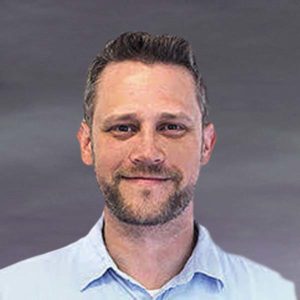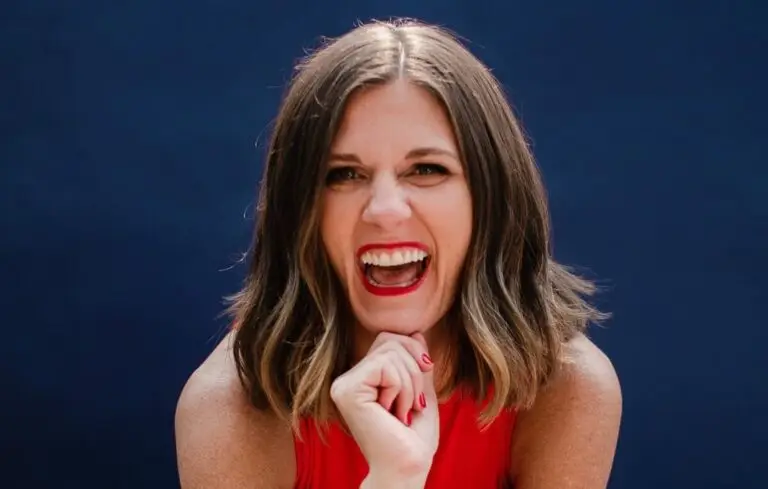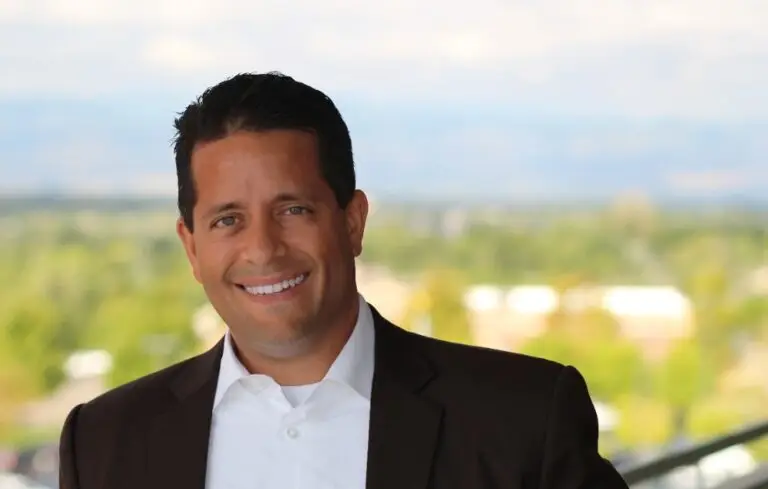Gensler co-CEOs Andy Cohen and Diane Hoskins aren’t your average chief executives—they’re architects, too. And that background in creativity provides them with a unique perspective when running Gensler, the San Francisco-based design and architecture firm with a team of 6,000-plus employees across 48 offices.
For Cohen and Hoskins, communication, collaboration and a focus on Gensler’s people and company culture is the key to success. Chief Executive caught up with the co-CEOs to talk about their creative background, how they find balance as co-CEOs, the keys to attracting and retaining top talent, and the importance of company culture at Gensler. Below are excerpts from the conversation.
How they find balance as co-CEOs
Diane Hoskins: We really have worked together for so many years, and the basis of all of it is a great working relationship where we really do understand where each other is coming from as an important part of this, and a total respect for each other’s great gifts and strengths that we bring to the role. We get this question all the time. And at the end of the day, I think we feel that this approach is really what our firm needs. We are a unique firm. We are a network of designers and creatives and architects across the global footprint and unlike any other firm.
When we look at our leadership model, we are just as creative about how we approach this as how we approach everything. And we feel this is an innovation, this is not what other people are doing. We feel there are incredible opportunities and advantages because we do have the opportunity to bring Andy’s full portfolio of strengths and my portfolio of strengths, which are both very different, into the broader leadership framework of our organization. And we really believe, as a firm, in collaboration. Andy and I demonstrate that every single day by collaborating with each other and being able to really help set the vision of our firm and enable our people to achieve great things for their clients in their community.
Andy Cohen: For us, it’s all about collaborative leadership. We are a global firm, last year we worked in over 100 countries. We have offices in 48 cities around the globe. And for us, it’s about seamless integration and collaboration around the globe. So it’s not only at the top of our firm, with Diane and I being co-CEOs. But in most key offices and practice areas and client relationships, we have two or three people collaborating together. It’s that diversity of thinking that we can bring to the table for our clients and for our people.
We’re uniquely talented people, and we really express the unique talent of our people. Diane and I have been working together on it since 2005, so it’s been 13 years. We’ve both been with the firm for decades. And what’s really important is I think this permeates our whole organization, that this collaborative leadership style is something that takes us into the future. Our clients appreciate that we have this whole diversity of thinking and diversity of people and bringing critical backgrounds, so that people who have pretty different backgrounds, different thinking, they’re bringing that to the table for the future.
How the creative architect’s mindset influences them in the CEO role
Andy Cohen: We are both architects. But we’re also both interior designers. We are both graphic designers. We are strategists. So we’re beyond just being architects. And that’s also what permeates our firm—the full gathering of strategy in design and research that we bring to the table. This is my 37th year with the firm. I was raised in the firm as a designer. I designed many key projects in the firm, and then over time became an office leader, then a regional leader, and obviously co-CEO.
And Diane can speak for herself with her history in the firm and her understanding the nature, the quality of our work, and how we work together as a team is really, really important. We are very hands-on. We see and formulate our visions for the future together with our board of directors and management committee. And so we really feel like we’re very hands-on leaders.
Diane Hoskins: What is it about being an architect that has really influenced how we lead? Honestly, I think that it really is the core of how we lead. I’ll say in three ways: One, architecture is a people-focused profession. You’re designing for people. There’s this kind of central piece of design in architecture that is really understanding the people side of it. That’s what architecture is for and how we approach leading. It’s about our people.
And then in terms of process, I think Andy and I innately have brought the architectural process to how we lead. You start with concepts, which is how you do it as an architect. It’s the big ideas. And then you drive all the way down to the details. And as Andy was saying, it’s that hands-on. But it’s also that 35,000-seat visionary side. And as an architect, that’s what you do. You start with that bigger vision. But then you have to drive to those details.
And then also, as architects, you’re always thinking long-term. What we create as architects is going to be around for 20, 30, 40, 50, maybe 100 years. And that’s how we think about our firm. We have this sense of today and near-term and long-term always in mind as part of how we make leadership decisions. So I think the fact we both are architects really maps into our management strategy and style.
The importance of culture at Gensler
Diane Hoskins: It’s such an important part of what Gensler is about. Our culture is what we’re all about. We’re in 50 different offices in all these countries that our team works across. We have one team member seating in New York. One is sitting in Chicago. And somebody else or five people are in Shanghai or someone is in Costa Rica. Another person is in India. And the rest of the team is in London or a group in San Francisco is working with a group in Detroit. That’s how our firm works. It’s really one team.
Andy and I just launched kind of a new organizational model that really evolves a number of our leadership strategies to really reinforce how we work. But the core idea is a phrase that we have really locked into over the last 10 or 15 months now, which is one community and this whole idea of what a community is, and that Gensler is a community.
If you look at our culture, it really is about defining a community of people with shared values, a shared understanding of the future, a respect for each other, an embracing of the potential that our firm has, and how we are looking to create a better world through the power of design, both in our local and in our global markets, bringing capabilities from around the world to the communities that we touch. And it’s this spirit, really truly, the spirit and culture of one community that is really at the core of who we are.
Andy Cohen: This is probably the core value proposition of our organization in today’s market and in the future. It’s one community, we are one seamless, integrated organization around the globe with the ability to be able to work with our clients, and our clients are asking us to work in two, and three, and four, and 10 cities around the globe at one time. We have to have that ability and that core culture. We really believe in our culture of trust, respect and integrity. It’s very, very important to us, along with all the great leadership and entrepreneurial nature of our organization, risk-taking that we’re doing, that propels our firm forward.
So this idea, I think, is unique in our profession. And it has allowed us to propel to be able to work in over 100 countries this year, seamlessly and integrated and, most importantly, that we are one firm, that we are all in this together. We sink or swim together. We have several meetings a year where we bring most of our key leaders together in one community or another. And we celebrate the idea that we are one culture and one community. Again, it really differentiates us in the marketplace.
Keys to attracting and retaining world-class talent
Diane Hoskins: This is probably one of the most core aspects of what Andy and I as co-CEOs focus on, how it’s all about our talent. And that’s not just a throw-away statement, it’s really the case. We have the most talented people in the world. It’s all based on a real understanding of the power of diversity. And we are building the most diverse creative organization in the world.
We have people from 80 different countries speaking multiple languages, people coming from different backgrounds. We’re over 50% women and, frankly, over 50% millennial as well, in our organization. We believe our success is directly attributable to our diversity. And we are continuing to drive that through a whole series of different initiatives and awareness that diversity drives innovation, different points of view. It brings strength to our solutions.
We are focusing on the city, and cities are diverse. So it takes a diverse team to create the right solutions for those cities. That is really core to our focus on people. And we invest in our people. Let’s just say the architectural profession, which we all know has the reputation of being a star system where you have kind of that great genius at the top and no one else really matters, we have flipped that upside down. Everyone matters at Gensler.
And that is what we talk about every single day in our organization. Every person matters. Everyone has opportunity here. And we want to ensure that through the way that we handle opportunities to work on different kinds of projects, opportunities to go to different countries to work on projects, opportunity to grow. Let’s say you start out as someone who is doing building, but you’re really interested in designing a baseball stadium. Well, in Gensler, you’re able to do that and have that ability to direct your career in many, many different directions over your tenure with us, so that you don’t need to go to another firm.
You can stay with Gensler and work in another city. You can stay with Gensler and work on a different type of project. You’re going to grow because there’s opportunities for leadership. We are always looking for leaders to take on new initiatives and new areas of practice for us. We have Gensler University, which is our leadership development program. And we have constant professional development and learning programs on every aspect of what we do, both technical skills and soft skills, as well. It really is about our people, and over and over again we’re ranked as one of the top places to work. We’re proud of that, and we want to continue to raise the bar ourselves. We are a place where people thrive, and that’s really at the core of who Gensler is.
Andy Cohen:. We are so laser-focused on this, about creating an environment where people can thrive. It all starts with our vision to create, and our people are really rallying around it, to create a better world through the power of design. These are phenomenally entrepreneurial creative people. We are laser-focused on creating an environment where there’s a camaraderie, there’s a sense of purpose. People, in today’s market, are looking for purpose. And so we have so many avenues for people to plug into. Diane mentioned Gensler University where we have training programs. We are constantly mentoring and coaching people so they can move forward in their careers for whatever they are interested in.
We are also involved in so many different community impact areas right now. We call it Gensler Community Impact. And our people are giving back in so many ways in the communities that we live in, from dealing with homelessness, to helping out on hurricane relief to anything that’s occurring in our local communities. This issue and opportunity with people we see as the core guiding principle for our organization, and that’s what I believe, and we believe, has allowed us to thrive.
We’ve grown tremendously over the last 10 years. And the makeup of our people is constantly changing. We just passed the 50% mark in millennials being in our organization, and each of these four generations in our workplace now has different needs and wants. We’re constantly focused on making sure we’re providing that environment for them.
Related: Northwestern Mutual CEO John Schlifske On Building A Tech Hub In Milwaukee







